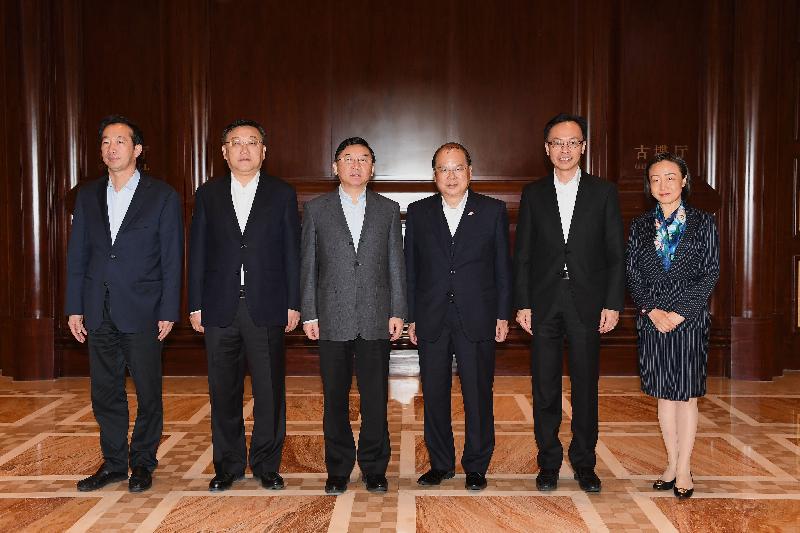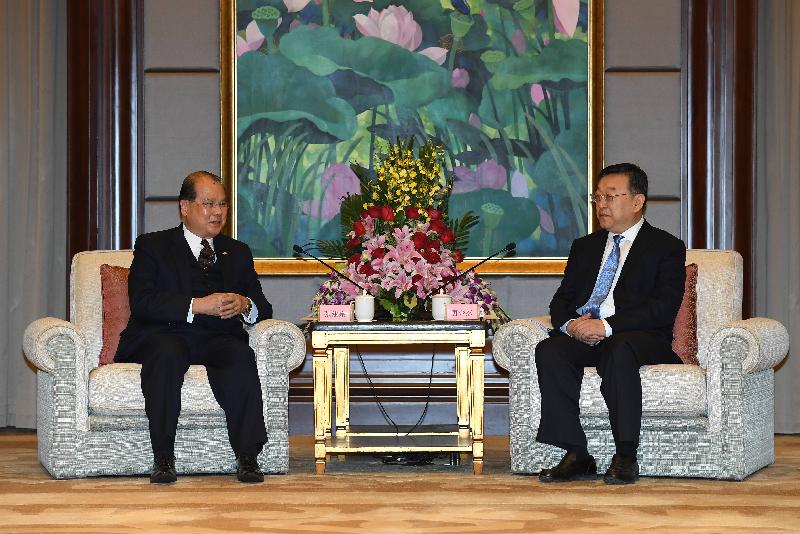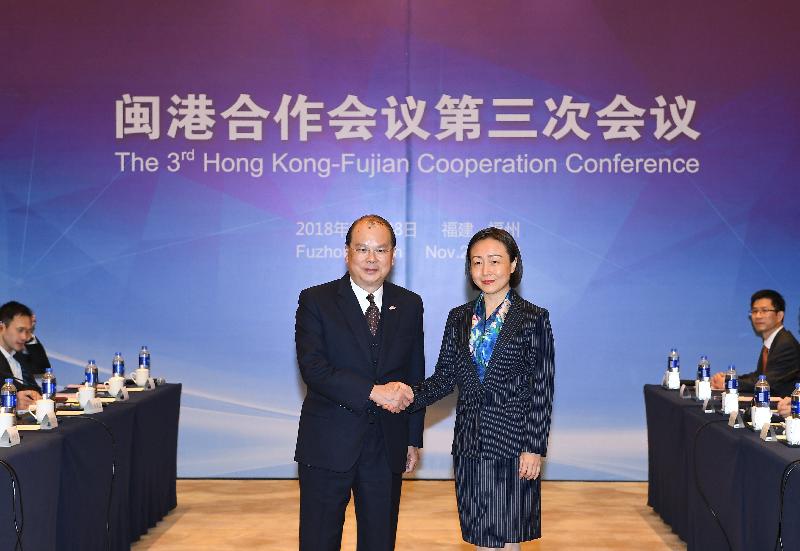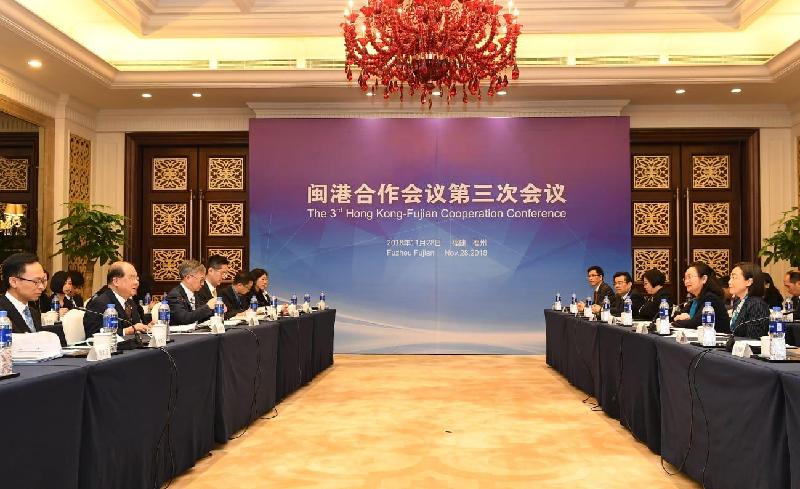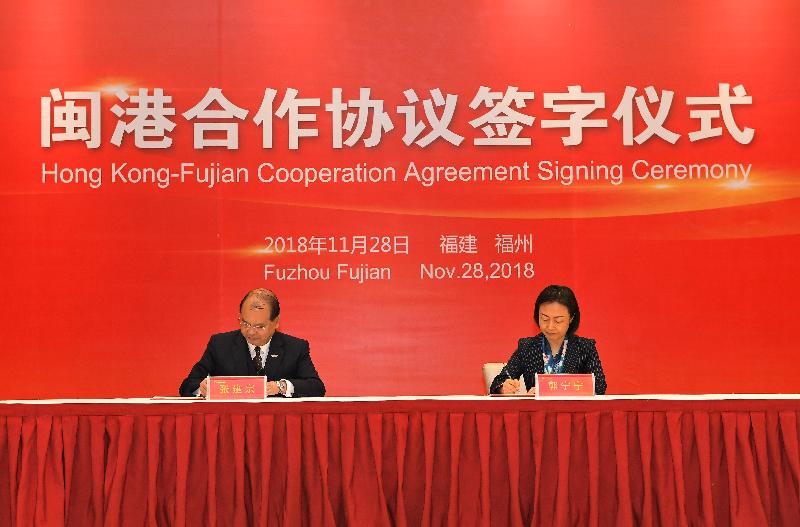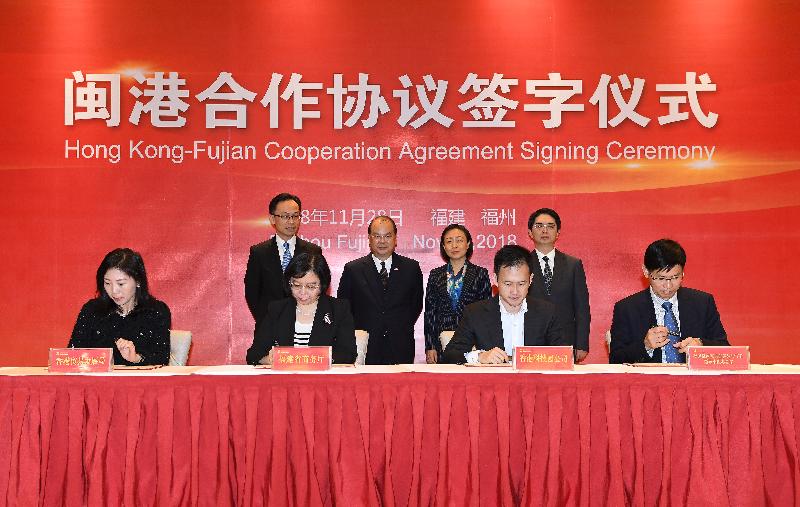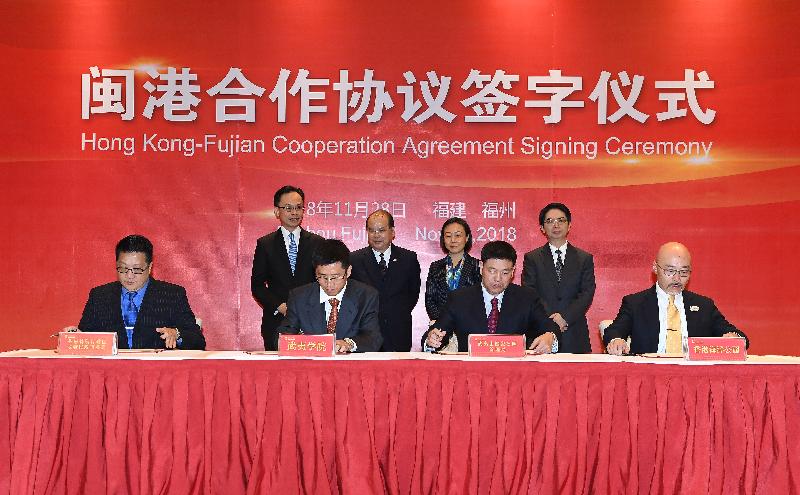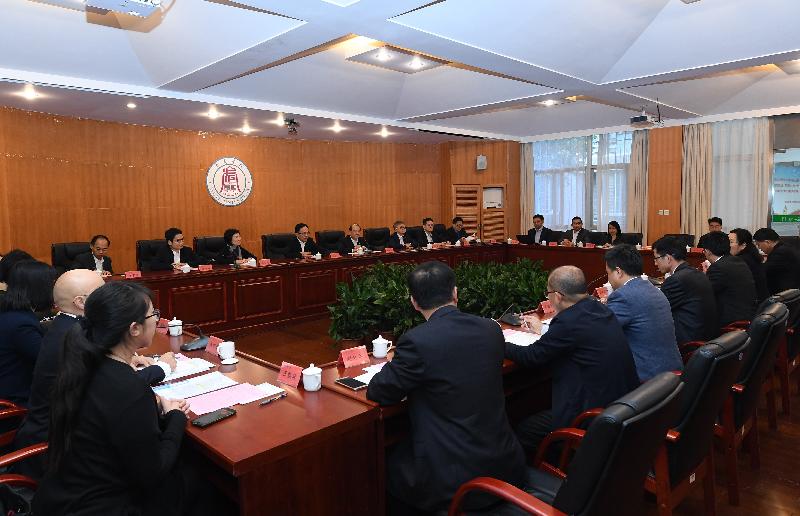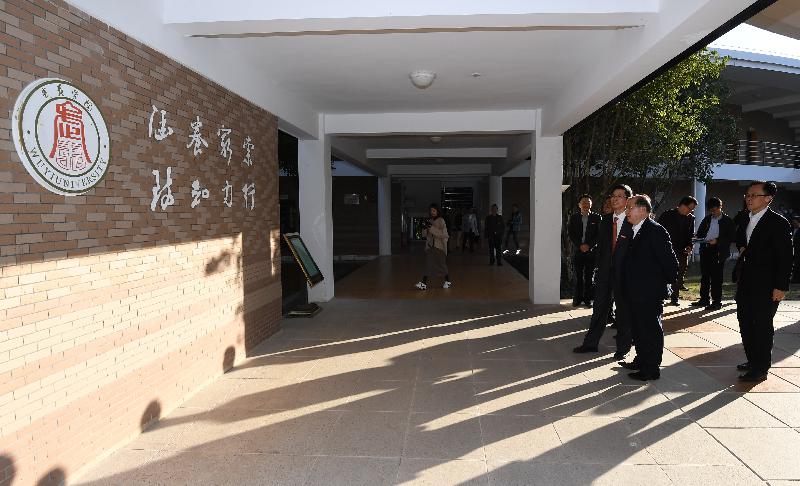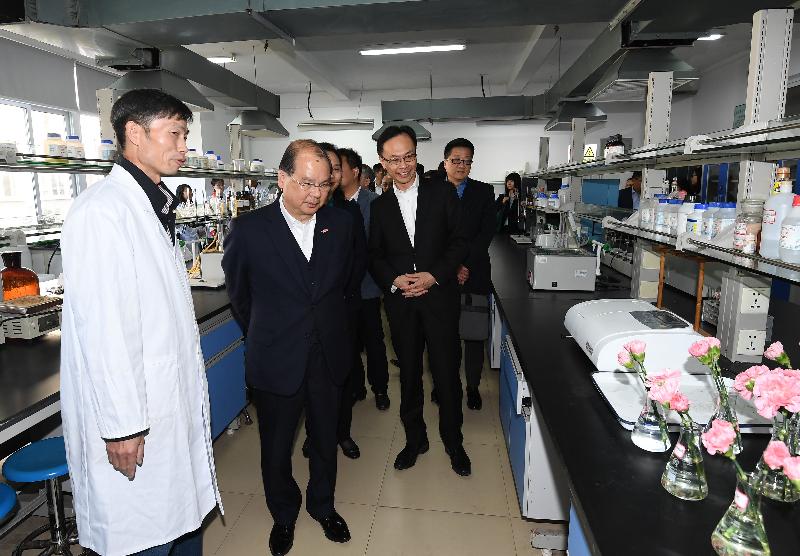LCQ22: Promotion of education on subjects related to Science, Technology, Engineering and Mathematics
Following is a question by the Dr Hon Elizabeth Quat and a written reply by the Secretary for Education, Mr Kevin Yeung, in the Legislative Council today (November 28):
Question:
Regarding the promotion of education on subjects related to Science, Technology, Engineering and Mathematics (STEM), will the Government inform this Council:
(1) whether, since issuance of the "Computational Thinking – Coding Education: Supplement to the Primary Curriculum" to primary schools in November last year, the Education Bureau (EDB) has conducted any survey on the situation and progress of the implementation of coding education in primary schools; if so, of the details; if not, the reasons for that;
(2) as schools may decide, on their own, the number of hours for learning STEM subjects or even not to offer this type of subjects, resulting in schools having different paces in the development of STEM education, whether EDB will formulate standardised STEM education targets for primary and secondary schools; if so, of the details and timetable; if not, the reasons for that;
(3) whether it will encourage schools to make use of the Life Planning Grant and the Life-wide Learning Grant disbursed by EDB to take students outside the classrooms for learning about the types and qualifications required of the jobs in the innovation and technology (I&T) industry, so that they can set their own learning goals;
(4) of the respective manpower and other resources deployed, by the Government in each year since the implementation of STEM education in the 2015/2016 school year, for (i) teacher training, (ii) school-based on-site support and (iii) provision of complementary software and hardware, so as to assist schools in developing courses on coding, artificial intelligence and other new technology applications;
(5) whether it will collaborate with the various universities to provide primary and secondary school teachers with (i) training on courses relating to coding, artificial intelligence and other new technology applications, as well as (ii) assistance in the compilation and production of relevant teaching materials; if so, of the details; if not, the reasons for that;
(6) of the number of students admitted in each of the past five years to the STEM-related bachelor's degree programmes offered by universities funded by the University Grants Committee;
(7) as it is learnt that currently most of the prospective university students with better academic results usually apply for programmes on disciplines such as medicine, law and accounting, while a small number of them opt for programmes on STEM-related disciplines, whether the Government has put in place measures to enhance the understanding of parents and students about the bright prospects of graduates in STEM-related disciplines; if so, of the details; if not, the reasons for that;
(8) whether it will increase the number of places for bachelor's degree programmes in STEM-related disciplines so as to nurture more I&T talents; if so, of the details; if not, the reasons for that; and
(9) given that it is stipulated in the "Development Plan on the New Generation of Artificial Intelligence" promulgated by the State Council last year that the Mainland primary and secondary schools will provide artificial intelligence related courses, whether the Government will, by making reference to this practice of the Mainland authorities, add artificial intelligence-related learning contents to the primary and secondary school curricula; if so, of the details; if not, the reasons for that?
Reply:
President,
To align with the worldwide educational trend and to equip students with necessary knowledge and skills in response to the rapid economic, scientific and technological developments, as well as the changes and challenges in society, the Government has made significant efforts to promote STEM (Note 1) education in recent years. In late 2016, the Education Bureau (EDB) released the Report on "Promotion of STEM Education – Unleashing Potential in Innovation", which contains a number of recommended measures including renewing the curricula of Science, Technology and Mathematics Education Key Learning Areas (KLAs), enriching the learning activities for students, providing schools with resources, enhancing professional development of teachers, strengthening partnerships with key stakeholders in the community, conducting reviews on implementation and disseminating good practices. These recommended measures are being implemented progressively. In the light of the latest development in science and technology, we updated the relevant Curriculum Guides, which were published in 2017. We enhanced coding education at the primary level in the 2017/18 school year to develop the computational thinking skills of students. In fact, STEM education is not a separate and new subject. We have been promoting STEM education in primary and secondary schools through relevant KLAs, including the Science, Technology and Mathematics Education.
Our reply to the question of Dr Hon Elizabeth Quat, with views from the Innovation and Technology Bureau incorporated, is as follows:
(1) The EDB prepared the "Computational Thinking – Coding Education: Supplement to the Primary Curriculum" in November 2017 for deployment of schools to further enhance coding education in primary schools and develop students' computational thinking skills. To support schools in promoting coding education, we have been organising professional development programmes for teachers to enhance their professional knowledge and capabilities. Through existing channels, which include school visits, organising professional development programmes for teachers as well as regular contacts with school councils, we exchange views with teachers and principals on the implementation of STEM education, including coding education, so as to learn about the implementation of STEM education in schools. We have learned that currently schools have generally introduced coding education and adopted different approaches for implementation in the light of their school context, including provision of learning activities on coding in computer lessons, incorporation of the relevant contents into individual subjects (such as General Studies) at the upper primary level, or re-organisation of the curriculum (such as Mathematics and computer lessons) to create space for teaching coding. We will continue to communicate with schools and offer timely suggestions and support.
(2) STEM education is not a separate and new subject, but is implemented in local primary and secondary school curricula through the Science, Technology and Mathematics Education KLAs (such as Mathematics at the primary and secondary levels, Science and Computer Literacy at the junior secondary level, and General Studies at the primary level).
These KLAs must be included in both primary and secondary school education. The idea that schools may decide, on their own, the number of hours for learning STEM-related subjects, or may even decide not to offer such subjects, is not accurate. The aims of promoting STEM education are to enable students to recognise the relationship between innovative technology and their daily lives, to enhance their ability in integration and application of knowledge and skills in the relevant KLAs, and to nurture their collaborative, hands-on, minds-on and creative problem-solving skills. To be able to integrate and apply what they have learned in different areas, it is necessary for students to develop a solid knowledge base in science, technology and mathematics. In addition, schools may further strengthen STEM education by arranging life-wide learning activities such as STEM-related project learning, scientific investigation, or technology and problem solving competitions.
Student-centred approaches are emphasised in promoting STEM education at both primary and secondary levels, whereby enhanced learning and teaching strategies are adopted to facilitate students' integration and application of what they have learned for problem solving, thus enhancing their creativity, collaboration and problem solving skills and fostering innovativeness. In addition to the Science, Technology and Mathematics Education KLAs, other KLAs (such as those of Arts Education and Language Education) may be brought into play to facilitate students’ creative problem solving by integrating and applying what they have learned. Some schools, for example, have implemented STEAM (Science, Technology, Engineering, Arts and Mathematics) education by incorporating elements of Arts Education.
Therefore, in accordance with their school context and their students' interests and abilities, schools may adopt different emphases and plans, and incorporate different learning elements for the implementation of STEM education in order to enhance students' learning effectiveness. The formulation of specific indicators for education by the EDB for steering the development direction of this relatively new curriculum initiative does not meet schools' practical needs. In fact, many schools with outstanding performance in implementing STEM education have been invited by the EDB to participate in the Professional Development Schools Scheme and the Quality Education Fund Thematic Networks. These schools have organised networking activities to share their experience on the implementation of school-based STEM education with other schools regarding various themes. This strategy in implementing STEM education is preferable to formulating standardised indicators for education without taking into account different characteristics and development progress of schools.
In addition, the Task Force on Review of School Curriculum (Task Force) was established in November 2017 to holistically review the primary and secondary school curricula. Among all curriculum issues, the Task Force has identified STEM education as one of the key areas. It has established a working group to review the implementation of STEM education in primary and secondary schools, and propose enhancement measures where necessary. Upon extensive consultation and thorough discussion with major stakeholders on various issues, the Task Force is expected to make directional recommendations to the Government by the end of 2019. By then, we will conduct detailed discussion and take follow-up action under the established arrangement through the existing bodies/committees such as the Curriculum Development Council and the Hong Kong Examinations and Assessment Authority.
(3) STEM education emphasises students' abilities to integrate and apply knowledge to solve problems. Enhancing students’ understanding of the application of science and technology knowledge in various industries as well as the development of these industries is an essential component of STEM education, and this dovetails effectively with life planning education. We have implemented various measures to support schools in this regard, including organising professional training for teachers, and developing a dedicated Career Information Website that provides students, teachers and parents with relevant information on different industries (including the I&T industry) such as qualification requirements and career ladders. Life planning education and STEM education must progress with the times. Teachers responsible must grasp the structural changes in the economy and the latest technological development to provide students and parents with proper guidance. Through the "Business-School Partnership Programme" (BSPP), the EDB has collaborated with the business sector and community organisations to provide students with a wide range of career exploration activities, such as talks, workplace visits and work experience programmes, which enable students to understand different industries, including the I&T industry. The EDB also organises regular visits, such as the Innovative Technology Development in Shenzhen, to enhance teachers’ understanding of the prospects of neighbouring economies and their industries (including the I&T industry) so that they can help students seize the opportunities. With regard to the needs of their students, schools should formulate school-based work plans and implementation strategies, and make effective use of school resources (including the Career and Life Planning Grant and the proposed Life-wide Learning Grant) to provide diversified guidance services and learning activities to help students understand themselves, their interests, abilities and orientations, and keep them abreast of the latest career related information. In doing so, students not only develop a deep understanding of the application of science knowledge and its impacts on our daily lives, but also get prepared for their future academic and career pursuits.
The Life-wide Learning Grant will enable schools to organise more out-of-classroom experiential learning activities to foster students' whole-person development. In the light of the curriculum and needs of their students, schools can deploy the Grant to further promote STEM education in school and arrange learning activities related to the I&T industry, such as workplace experience, talks on related fields, visits to I&T enterprises/organisations in the territory and outside Hong Kong. These activities can enlighten students about the operation and latest development of relevant industries, and help them identify their interests and strengths for developing the goal of their academic and career pursuits.
(4) Regarding the promotion of STEM education, we have progressively implemented the relevant support initiatives, including the enhancement of professional training for teachers and the provision of professional support as well as learning and teaching resources. On professional training for teachers, we have been providing intensive training programmes on STEM education for school leaders and middle managers in batches, and organising professional training programmes for teachers on coding education and on themes related to technology application to support schools in promoting STEM education. The EDB implemented the Paid Non-local Study Leave Scheme for Secondary School Teachers (i-journey) in the 2017/18 school year. STEM Education was chosen as the theme of one of the programmes offered. This Scheme aims to broaden teachers' professional perspectives and keep them abreast of the latest trend in global education developments so as to inspire their professional ideas in learning and teaching through their participation in specific courses and an overseas school attachment programme lasting for about three months. Besides, we have been providing primary and secondary schools with diversified school-based support services, so as to assist them in curriculum planning across the KLAs of Science, Technology and Mathematics Education and incorporating elements of STEM education into the school-based curriculum. Schools may apply for participation in the relevant support schemes having regard to their developmental needs and students' educational needs.
As the manpower and other relevant expenditure involved in the curriculum development of STEM education, including professional training for teachers and school-based support services, are subsumed under the EDB's overall expenditure, a breakdown of the expenditure is not available.
Regarding the promotion of Information Technology (IT) in Education in primary and secondary schools, we launched the Fourth Strategy on Information Technology in Education (ITE4) in the 2015/16 school year. One of the key measures of ITE4 is to establish WiFi campus for all public sector schools and the relevant work was basically completed in the 2017/18 school year. Under ITE4, every school has been disbursed with an extra recurrent grant of $70,000 on average for continuous subscription of WiFi services, and a one-off grant of $100,000 on average for acquisition of mobile computing devices. We have also provided an extra one-off IT Grant of $200,000 per school on average to enhance the practice of e-learning. The total funding for the above two one-off grants relating to IT in education amounts to $290 million. Furthermore, the Office of the Government Chief Information Officer launched the eight-year Enriched IT Programme since the 2015/16 school year to help students develop an interest in and understanding of IT starting from secondary school, with a total funding commitment of $75 million. In the 2017/18 and 2018/19 school years, the programme provided funding support to 89 local secondary schools for organising Enriched IT Activities themed on virtual reality (VR) and augmented reality (AR) technologies. Each secondary school is eligible for a funding of $50,000, with the total funding amounting to $4.45 million.
(5) To underpin STEM education, we continuously collaborate with different stakeholders, including tertiary institutions, professional bodies, non-governmental organisations and technology enterprises to provide professional development programmes for teachers and develop learning and teaching resources. These training programmes cover programming/coding education and application of other new technologies. For example, we have all along engaged tertiary institutions in the provision of intensive training programmes on STEM education and professional development programmes related to coding education for primary and secondary schools. We have also worked with tertiary institutions to develop learning and teaching resources on coding education for primary and secondary schools like the module of Developing Programming Concepts through Programmable Physical Object under the Computer Awareness Programme for primary schools. We will continue to collaborate with tertiary institutions to develop relevant learning and teaching resources, such as a teaching kit about Micro:bit currently under development to support schools in implementing coding education for enhancing the computational thinking and applied technology skills of students. Moreover, we have actively engaged different stakeholders in the community as part of our concerted efforts to strengthen the promotion of STEM education. Individual non-governmental organisations like the Hong Kong Jockey Club Charities Trust are working with different tertiary institutions, with professional input from the EDB, to develop the coding education curriculum for primary schools. Schools were also invited to join a pilot scheme to assist in further improving the curriculum.
(6) The figures of student intake of University Grants Committee (UGC)-funded STEM-related undergraduate programmes over the past five academic years are as follows:
| Academic year | Student intake |
| 2013/14 | 5 886 |
| 2014/15 | 6 155 |
| 2015/16 | 6 304 |
| 2016/17 | 6 565 |
| 2017/18 | 6 780 |
Notes:
(1) STEM-related programmes include biological science, physical science, mathematical science, computer science and information technology, engineering and technology, architectural studies and town planning.
(2) Since some UGC-funded programmes are mapped to more than one academic programme category (APC), the number of intake of these programmes is counted on a pro rata basis under the relevant APC. Thus, the figures for certain APC may have decimals and such figures have been rounded to the nearest whole numbers in the above table.
(7) The Government has been implementing various measures to improve the innovation and technology (I&T) ecosystem in Hong Kong and provide young people with quality employment opportunities. The Government has also been actively promoting I&T culture to raise public interest in STEM subjects. The Innovation and Technology Commission (ITC), in collaboration with various programme partners, including universities, R&D institutions, government departments and non-governmental organisations, organises the InnoTech Month every year to let the general public, including students, understand the latest I&T developments and accomplishments of Hong Kong through activities like large-scale carnivals, roadshows, exhibitions, seminars and workshops. In addition, ITC supports the Hong Kong Federation of Youth Groups in organising the Innovation and Technology Scholarship Award Scheme every year, which gives recognition to outstanding STEM undergraduates of local universities and offers internship opportunities, thereby enhancing students' understanding of the development potential of the I&T industry in Hong Kong and building up attractive career prospects for them. The Government also from time to time collaborates with the Hong Kong Science and Technology Parks Corporation, youth groups, social service organisations, the academic and business sectors, etc. to support various popular science activities and arouse young people’s interest in I&T.
In view of the fact that pursuing a research career is one of the paths taken by students of STEM-related disciplines upon graduation, the Government is also committed to making research work an attractive and promising option. Relevant measures announced in the 2018 Policy Address include the following: injecting $20 billion into the Research Endowment Fund to substantially increase research grants and provide a more stable source of research funding, so as to foster the scientific research ecosystem in Hong Kong; launching a new Research Matching Grant Scheme which provides a total of $3 billion in three years to facilitate the higher education sector to tap more sources of research funding and also encourage collaboration between the industries and the sector in research and development; and supporting the Research Grants Council (RGC) in introducing three new fellowship schemes, i.e. the Postdoctoral Fellowship Scheme, the RGC Research Fellow Scheme and the RGC Senior Research Fellow Scheme, which will benefit postdoctoral fellows and researchers at associate professor and professor levels. These new schemes will encourage doctoral graduates to pursue careers in research, provide support for promising researchers and increase attractiveness of STEM subjects to undergraduates-to-be.
On primary, secondary and parent education, we proactively introduce the STEM-related professions to parents and students so as to get our students prepared for pursuing the study of STEM-related subjects and careers in the future. Training activities are provided to teachers for enhancing their understanding of the latest development of I&T and STEM-related industries so that they can encourage students with potential to pursue the study of STEM-related subjects. Besides, we collaborate with tertiary institutions, other government departments and professional bodies to organise large-scale STEM-related activities and competitions for students, thereby creating an atmosphere for learning science and technology and providing opportunities to unleash students' potential. We also enhance the liaison with different stakeholders (including the commercial and industrial sectors and I&T institutions) and provide students with opportunities to participate in talks, visits and experiential learning activities for understanding of the development of relevant industries.
Besides, the partners of the BSPP have organised career talks and workplace visits for parents to better understand different trades and industries(including the I&T industry) so that they can support and encourage their children to pursue their life goals in accordance with their interests and abilities. In the 2017/18 school year, about 50 career exploration activities related to I&T were organised under BSPP. The EDB will continue to invite more business and community organisations to participate in BSPP, with a view to providing more number of career exploration activities (including those related to the I&T industry) for students and parents.
In addition, we have been assisting parents to gain a more comprehensive understanding of their children's pathways and to help their children make better life-planning in accordance with their aspirations and abilities. On the front of understanding STEM education, I&T competitions for schools, relevant parent-child workshops and briefings have been organised annually by the Federations of Parent-Teacher Associations in various districts in recent years with the support of the EDB and the Committee on Home-School Co-operation, with a view to enhancing parents' and students' understanding of STEM education and its latest development and encouraging parents to support I&T education.
(8) The Government and the UGC adopt a triennial planning cycle in determining the recurrent funding for the UGC-funded sector. The UGC-funded universities enjoy academic freedom and institutional autonomy. Under the triennium planning exercise, the UGC-funded universities will, taking into account a host of factors such as social developments, market demand, relative strengths and the Government’s observations on manpower trends of different industries, submit their respective Planning Exercise Proposals (PEPs) and the student number target for each UGC-funded programme for the UGC’s consideration.
The ITB has earlier briefed the UGC-funded universities on the trends and development of manpower requirements in the I&T sector. In view of the importance attached by the community to I&T, the UGC-funded universities have responded positively in their PEPs for the 2019/20 to 2021/22 triennium by, inter alia, proposing more cross-disciplinary programmes in STEM and I&T, such as those relating to artificial intelligence and financial technology.
(9) With reference to the latest curriculum development in the Mainland and different countries and regions, and to cater for the needs of students, the school curriculum will be reviewed and renewed in an ongoing and timely manner. To further facilitate STEM education, we are reviewing the Information and Communication Technology Curriculum for the senior secondary level and considering incorporating contents related to artificial intelligence. The contents of the Information and Communication Technology knowledge context for the junior secondary level will also be renewed in a timely manner.
Note 1: STEM is an acronym that refers collectively to the academic disciplines of Science, Technology, Engineering and Mathematics.
